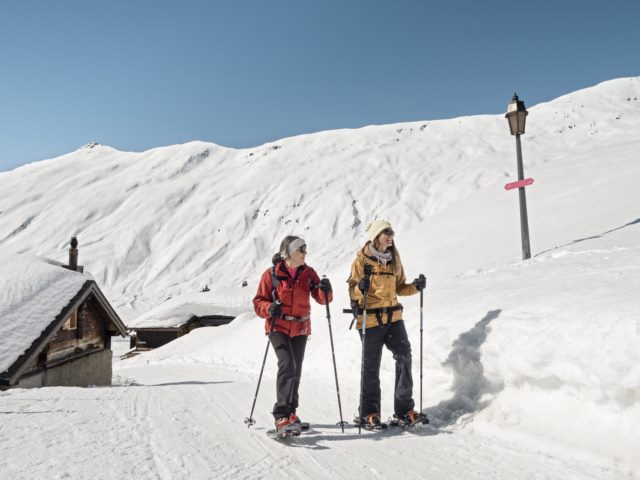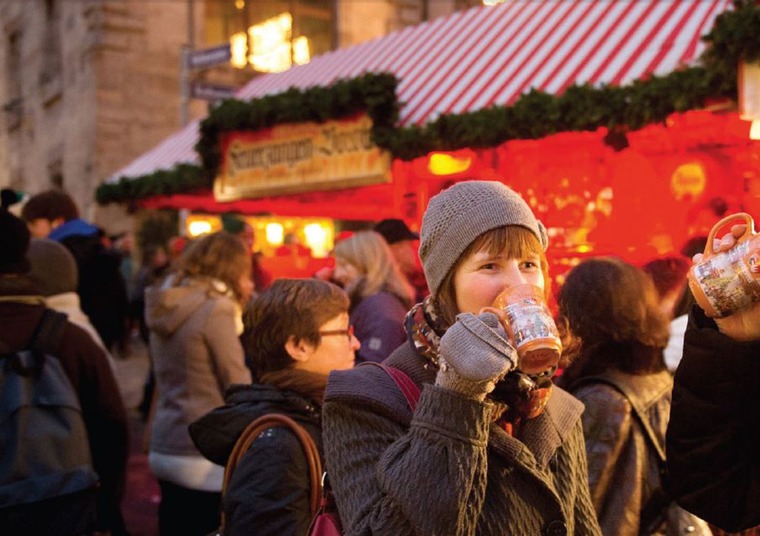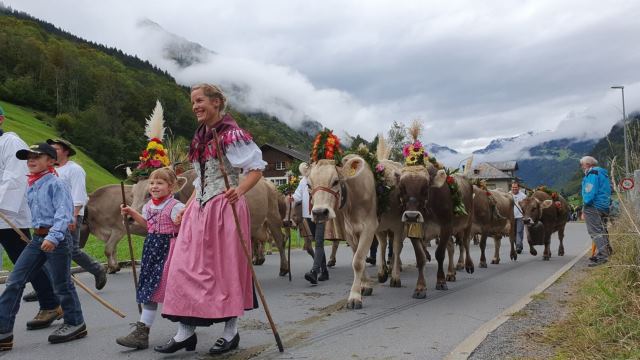Fri, Nov 26th 2021
If “loneliness kills,” as a Harvard study suggests, then what can we learn from the Swiss about living longer?
Focus on strengthening your relationships if you want to live a long and happy life, say the researchers behind the world’s longest study on adult health, the Harvard Study of Adult Development. Unsurprisingly, the longest-living populations, Switzerland and Japan, are also two populations where “community” ranks as one of the highest values among its citizens.

Getting your blood pumping in a group, like the Swiss do, is a good way to connect, research says.
More on the Harvard study
When researchers began observing the health of 268 students in 1938 (including future President John F. Kennedy and Washington Post editor Ben Bradlee), they thought they would learn about diet and exercise. And although physical health is an important component of longevity, they found that loneliness was the biggest killer. When the original subjects began passing away (only a handful are still alive at nearly 100 years old), the researchers expanded the study to include their more than 1,300 children. They found that the results were the same.
“The surprising finding is that our relationships and how happy we are in our relationships has a powerful influence on our health,” said current director of the study Robert Waldinger in a TED Talk revealing the study’s results. Researchers found that close relationships protected subjects from physical and mental decline – more so than IQ, income, or even genetics.
“When we gathered together everything we knew about them about at age 50, it wasn’t their middle-age cholesterol levels that predicted how they were going to grow old,” said Waldinger. “It was how satisfied they were in their relationships. The people who were the most satisfied in their relationships at age 50 were the healthiest at age 80.”
What we can learn from the Swiss
Family and social ties are at the heart of every Swiss community. It is reinforced in the many facets of Swiss life – from one’s home to the office, from school to religious institution and the calendar of traditional, community celebrations that each Swiss village holds dear.
Let’s take a closer look at how life Switzerland makes for some of the happiest and healthiest people in the world.

The Swiss revel in community events, like there Christmas markets — a favorite place for sipping glühwein.
Family first
Beginning at birth, the Swiss government adopts a “it takes a village” mentality for each child born on Swiss soil. The government provides stipends – roughly $300 per month to help families pay for child-related expenses. Mothers are given a mandated 14-week maternity leave and fathers a two-week paternity leave. In those first few, lonely months of parenting, a midwife regularly visits parents and the baby in their home for mental health and wellness check-ups.
School’s in session
Families have the opportunity to enroll their children in childcare beginning at the age of six months – what they pay is determined by a sliding scale based on the family’s income.
Public school is compulsory beginning at the age of four, and families have the option to bring their children home for a hot lunch or let them stay for one of the freshly- prepared school meals. The sight of unaccompanied four-year-olds walking to school is common in much of Switzerland where it is encouraged for children to learn independence by navigating their way to school. That said, the whole community bands together to help them in their commute. It helps that Switzerland is often rated the safest country in the world with incredibly low rates of violent crime.
Public education is strong in Switzerland and nearly 90% of Swiss adults have earned the equivalent of a high school degree (far above the global average, according to the Organization for Economic Cooperation and Development’s Better Life Index). If a high school student is not excelling in the traditional classroom setting, Swiss public schools give them the option to begin a trade apprenticeship through which they can begin earning an income right away.

With nearly all stores and restaurants closed on Sundays, the Swiss must take the day to relax.
Sundays are sacred
Saturdays in Switzerland are for socializing and sports, but Sundays are purely for relaxation. The Sunday tradition is reinforced by the closure of nearly all stores, restaurants and clubs in Switzerland – it is not a day to run errands or tackle the to-do list. You might find a Swiss person connecting with friends in their place of worship on Sunday – nearly 75% of the population considers themselves religious, according to the government. Even taking on loud home projects and vacuuming on Sunday is illegal in some parts of the country if it disrupts your neighbor’s peace.
Neighborly relationships cannot be underscored in this small country. When moving into a new neighborhood or apartment building it is customary to invite existing neighbors over for coffee or an aperitif, which is perhaps why 93% of Swiss people say they know someone they could rely on in a time of need, according to the Better Life Index.


Keeping traditions alive, like the annual descent of the cows from the mountains, keep the Swiss connected to their rich history.
Traditions and Customs
The Swiss tend to hold onto their traditions for generations – sometimes they have even been accused of being too traditional (not all women in Switzerland had the right to vote until 1990).
Most traditional festivals are a way of bringing communities together around events related to seasons changing, agriculture or religion. Some holidays have been celebrated for centuries and many are strange to outsiders. Some of the more bizarre Swiss holidays include:
–Böog: At the start of spring an effigy representing winter and filled with explosives is set on fire in the center of Zürich. Legend has it that the faster it burns, the warmer and sunnier summer will be.
–Unspunnenfest: Every twelve years, Interlaken locals compete in competitions such as yodeling, Alpine wrestling and throwing a 184-pound stone into the lake.
–Hexenabfahrt: Each January, more than 1,000 people dressed as witches ski from Belalp to Blatten with broomsticks in celebrating the legend of a local witch and her unfaithful spouse. It culminates in one of the largest après ski parties in the country.
-L’escalade: The people of Geneva march through town to reenact the trial and hanging of French invaders from 1602. Legend has it that the French were defeated by women throwing cauldrons of hot soup on them, so locals eat cauldron-shaped chocolates filled with candy vegetables.
–Chriesisturm: When a large bell rings each spring in Zug, locals race through town carrying long ladders in honor of the cherries being ripe enough to be harvested.
Perhaps Switzerland’s best-known tradition is one for neutrality, which has enabled them to maintain good relationships with almost every country in the world. Switzerland didn’t take a side in either world war nor has it joined the European Union. Therefore, it has also become a haven for international organizations, such as the United Nations, the International Committee of the Red Cross, the World Bank, the World Trade Organization and the International Monetary Fund.
